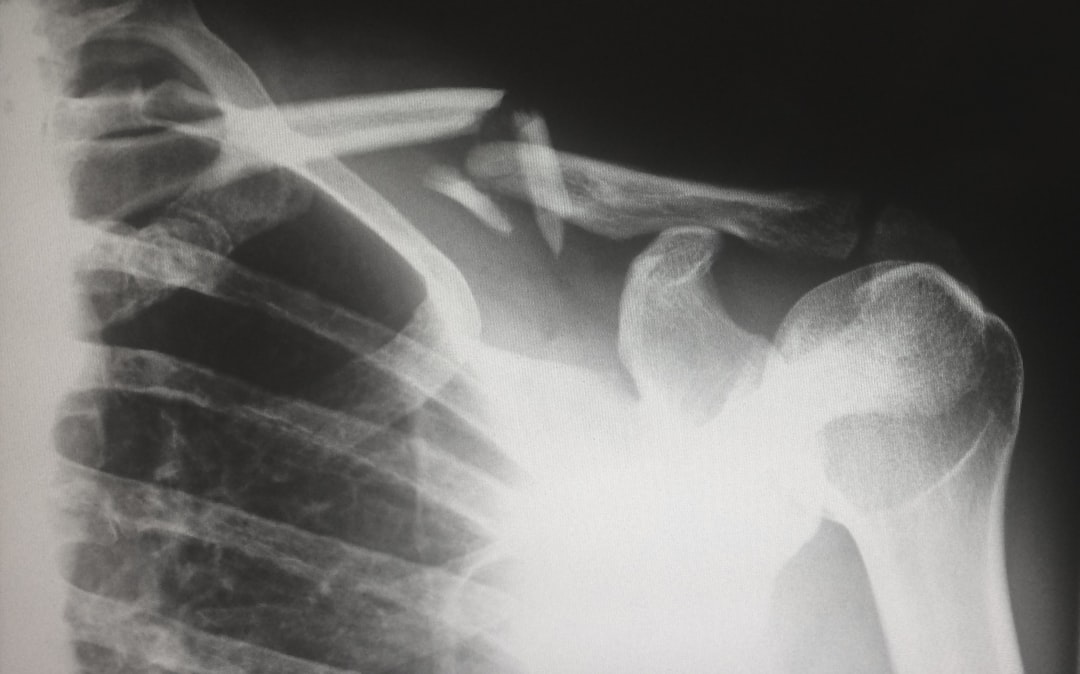Artificial Intelligence (AI) is rapidly improving the healthcare industry by increasing efficiency and accuracy while reducing costs. From aiding in diagnosis to the development of treatment plans, AI has become an invaluable tool for doctors and medical researchers alike.
The goal of AI in healthcare is to provide personalized and precise care for each patient by collecting and analyzing data in real-time. With the help of AI, doctors and medical staff can have access to comprehensive patient information that can inform their diagnosis and treatment. This ensures that each patient receives the best and most effective care to address their unique needs.
AI can assist doctors with everything from analyzing X-ray images to predicting the outcome of surgeries. By reducing human error and improving accuracy, AI helps medical professionals make more informed decisions.
Moreover, the use of AI in healthcare continues to grow and evolve. As the technology improves and more data is collected, AI has the potential to revolutionize the healthcare industry, offering a range of benefits to both patients and healthcare providers.
In this blog post, we will explore the benefits of AI-assisted diagnosis, the challenges associated with training AI for accurate diagnoses, ethical considerations in AI diagnosis, and future trends and predictions for the impact of AI on healthcare. We will also examine how the continued advancement of AI in healthcare will shape the future of medicine.
The Benefits of AI-Assisted Diagnosis: Efficiency and Accuracy
Artificial intelligence (AI) is transforming healthcare, especially when it comes to diagnosing and treating patients. One of the significant benefits of AI-assisted diagnosis is the improvement of efficiency and accuracy. AI algorithms have the capability to process vast amounts of data within a short time, which makes diagnosis more efficient compared to traditional methods.
Moreover, AI systems can analyze medical images or scans, and flag possible diseases or abnormalities in a matter of seconds, providing results that are usually more accurate than human interpretation. AI algorithms can also identify patterns in symptoms, patient history, and other medical data that may be missed by human physicians, improving the accuracy of the diagnosis.
Another essential benefit of AI-assisted diagnosis is that these systems can aid in the prevention of misdiagnosis, which can have grave consequences for patients. AI algorithms ensure that diagnoses are more consistent and objective, rather than relying on individual physician expertise, which can vary significantly.
The use of AI in healthcare is fast-tracking the diagnosis process and potentially saving countless lives, enabling healthcare professionals to make accurate diagnoses rapidly. Additionally, the cost savings of utilizing AI-assisted diagnosis are significant, as it reduces the number of repeated tests, medical errors, and the need for unnecessary treatments.
Overall, it is safe to say that the benefits of AI-assisted diagnosis are numerous, ranging from increased efficiency, better accuracy, to the prevention of misdiagnosis. As AI continues to evolve, it will pave the way for improved healthcare outcomes and will play a crucial role in advancing the way we approach healthcare.
AI algorithms ensure that diagnoses are more consistent and objective, rather than relying on individual physician expertise, which can vary significantly.
Overcoming Challenges: Training AI for Accurate Diagnoses
Artificial intelligence has the potential to revolutionize healthcare, but despite the tremendous progress made in recent years, there are still challenges that must be addressed before AI can be consistently relied on for accurate diagnoses. One of the biggest challenges is training AI to make accurate diagnoses.
Unlike human doctors, AI lacks years of experience and intuitive knowledge, meaning that it must be explicitly instructed on how to diagnose different conditions. This requires large amounts of high-quality data to train the algorithms, which can be difficult to obtain. In many cases, medical data is siloed across institutions, making it challenging to compile the necessary datasets to train AI algorithms.
Another challenge is creating AI algorithms that can account for the wide range of factors that can influence a diagnosis. Medical conditions can present in different ways, and there are often multiple potential diagnoses that could be accurate. Additionally, patients can have a multitude of conditions that make it difficult to diagnose accurately without access to complete medical histories.
To overcome these challenges, researchers are exploring new algorithms and approaches to training AI for accurate diagnoses. One approach is to use deep learning algorithms that can analyze vast amounts of medical data, identify patterns, and improve diagnosis accuracy. Another approach is to combine multiple AI algorithms to create a diagnostic tool that can account for a wide range of factors and provide more accurate diagnoses.
Overall, although challenges exist in training AI for accurate diagnoses, the potential benefits of AI-assisted diagnosis are too significant to ignore. With continued research and development, we can expect AI to become an increasingly powerful tool for healthcare practitioners, ultimately benefiting patients with more efficient and accurate diagnoses.
Overcoming Challenges: Training AI for Accurate Diagnoses
Artificial intelligence has the potential to revolutionize healthcare, but despite the tremendous progress made in recent years, there are still challenges that must be addressed before AI can be consistently relied on for accurate diagnoses.
Ethical Considerations in AI-Assisted Diagnosis
As much as AI-assisted diagnosis promises significant benefits to healthcare, it also raises ethical concerns that must be considered. Since the AI learns from the existing data, there is a risk of bias in the training data set used to train the algorithm. This means that the AI could make false predictions that perpetuate the existing bias.
Another ethical issue to consider is the impact of AI diagnosis on the doctor-patient relationship. A patient may desire a human doctor’s touch and personalized attention, which would be challenging to provide using AI. Also, there’s a risk that AI-assisted diagnosis could lead to mistrusting physicians, making patients solely rely on automated systems.
Additionally, AI-powered diagnosis may not be accessible to all people, which could widen the gap between rich and poor. Only those who can afford the advanced healthcare insurance plans would have access to AI diagnostic tools, which could be denied to underprivileged individuals.
Privacy concerns must not be ignored either, as health data is highly sensitive and should not be shared without the patient’s full consent. Patients expect their privacy to be respected, and AI diagnostic tools must ensure that their data is confidential and not vulnerable to hacking.
Therefore, experts recommend developing ethical guidelines for AI-assisted diagnosis that ensure transparency, data privacy protection, and unbiased learning. It is paramount to safeguard against the negative implications of AI diagnostic tools on patients and ensure that they meet ethical standards.
Overall, AI-assisted diagnosis offers significant benefits to healthcare, but ethical frameworks must continuously evolve to ensure patients’ well-being and privacy. By addressing the ethical challenges, we can harness the full potential of AI for disease diagnosis and transform healthcare for the better.
It is paramount to safeguard against the negative implications of AI diagnostic tools on patients and ensure that they meet ethical standards.
Future Trends and Predictions: AI’s Potential Impact on Healthcare
As the field of artificial intelligence continues to rapidly evolve, there is a growing interest in how this technology can revolutionize healthcare. AI has the potential to pave the way for a new era of medical research, diagnosis, and delivery of care, enabling healthcare professionals to diagnose and treat diseases more accurately and efficiently.
One of the most significant ways that AI will impact healthcare is by improving the accuracy and speed of medical diagnosis. By leveraging machine learning algorithms to analyze and interpret patient data, AI-powered tools can help healthcare professionals make faster and more accurate diagnoses, reducing the likelihood of errors and improving patient outcomes.
Moreover, AI is already being used to design and develop new medications and treatments that can be tailored to individual patients’ unique characteristics. This can lead to more effective patient care by taking into account a patient’s specific genetic makeup and treatment history and developing personalized treatment plans that are precisely targeted to the patient’s needs.
With the rise of wearable health technologies and connected devices, there is an increasing amount of data available for healthcare professionals to analyze. AI has the potential to transform the analysis of this data, providing healthcare professionals with deeper insights into their patients’ health, identifying risk factors and patterns, and uncovering new treatment opportunities.
Finally, AI has the potential to help reduce healthcare costs and increase access to care. By automating administrative tasks and streamlining clinical workflows, AI-powered tools can help healthcare organizations save time and money, enabling them to devote more resources to patient care. Additionally, AI-powered telemedicine solutions have the potential to expand access to care for people in remote or underserved areas.
In conclusion, the potential of AI in healthcare is immense, and its impact on the field is likely to continue to grow in the coming years. However, as with any new technology, there are a number of challenges that will need to be addressed, including ethical considerations, data privacy, and regulatory concerns. With the continued advancement of AI-powered healthcare solutions, the future of medicine looks brighter than ever before.
With the continued advancement of AI-powered healthcare solutions, the future of medicine looks brighter than ever before.
Conclusion: The Continued Advancement of AI in Healthcare
In conclusion, AI has proven to be a game-changer in the healthcare industry. It has the potential to transform how medical professionals diagnose and treat patients, while also improving the overall quality of care. With the ability to analyze vast amounts of data and identify patterns that human experts may miss, AI-assisted diagnosis offers significant benefits, including increased efficiency and accuracy. However, there are also significant challenges that need to be addressed, such as the need for accurate and diverse training data and the ethical considerations that come with using such technology in healthcare.
Despite these challenges, the future of AI in healthcare is bright. As machine learning algorithms continue to evolve and improve, we can expect to see even more advancements in disease diagnosis and treatment. For example, AI could be used to develop personalized treatment plans for patients or even predict which patients are most at risk for certain diseases.
In summary, the continued advancement of AI in healthcare offers tremendous potential for improving the lives of patients and the efficiency of the healthcare industry as a whole. While there are certainly challenges to overcome, medical professionals and technology experts should continue to work together to develop and implement AI-assisted diagnosis tools in a responsible and ethical manner. With the right approach, AI could revolutionize the way we approach healthcare and lead to a healthier, happier future for all.
With the ability to analyze vast amounts of data and identify patterns that human experts may miss, AI-assisted diagnosis offers significant benefits, including increased efficiency and accuracy.
Recommendations for the Successful Implementation of AI-Assisted Diagnosis in Healthcare
As we have explored in the previous sections, AI-assisted diagnosis has great potential to improve the efficiency and accuracy of patient care. However, it is important to approach AI implementation with caution to ensure we are taking necessary precautions to prioritize patient health and ethical considerations. Here are some recommendations for the successful implementation of AI-assisted diagnosis in healthcare:
- Collaboration and Communication: It is essential that healthcare providers, AI developers and stakeholders work together to ensure the safe and effective implementation of AI-assisted diagnosis in healthcare. Open and transparent communication is key to ensure that everyone is informed and aware of the benefits and potential risks associated with this technology.
- Training and Education: AI is only as effective as the data it is trained on. In order to ensure that AI-assisted diagnosis is accurate and reliable, it is critical that AI developers and healthcare providers work together to provide high-quality training data. Additionally, healthcare providers must be trained on how to use AI to ensure that they can interpret and understand AI-generated information correctly.
- Accountability and Transparency: AI-assisted diagnosis must be held accountable, just like any other healthcare intervention. Proper regulations and guidelines must be in place to ensure that AI is used ethically and protects patient privacy. Additionally, AI-generated results should be transparent and easy for healthcare providers to understand and interpret.
- Continual Evaluation and Improvement: AI technology is always evolving and improving. Healthcare providers must also take an active role in continually evaluating AI-assisted diagnosis and seeking to improve its accuracy and reliability.
In conclusion, AI-assisted diagnosis has great potential to revolutionize healthcare and improve patient care. By implementing the above recommendations, we can ensure that this technology is used safely, ethically, and to its full potential. However, we must proceed with caution and prioritize patient health at every stage of implementation.





